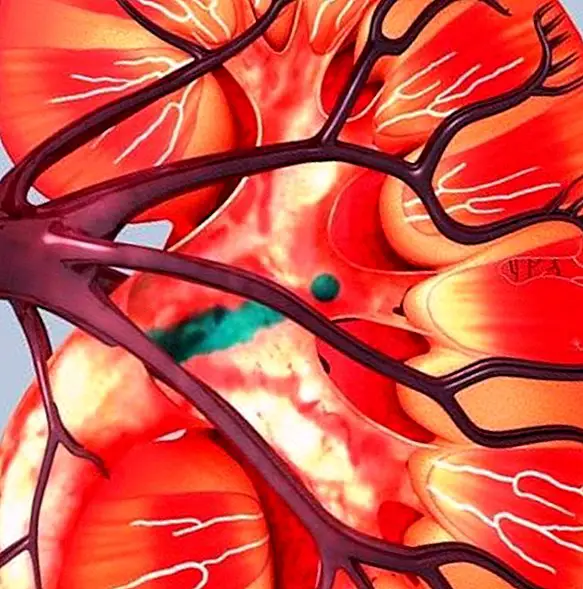Tips for strong and healthy bones

How can we strengthen the bones? Although up to 20 years our bones are regenerated, from that moment the process is reversed. Follow the advice and guidelines we give you to have some strong bones. Throughout our lives, the bones they are in a constant renewal, in such a way that our oldest bone mass is gradually replaced by new material.
Not in vain, during the adolescence, the bones tend to become stronger, denser, and to grow a lot, since during this important period more bone mass is being created than is actually lost. But once over twenty years, this interesting process is reversed, so that we begin to lose bone faster than it is generated.
Therefore, a series of guidelines and tips that help us have strong bones, preventing our bones from becoming weaker and brittle, and breaking with greater ease.
What do your bones need to stay strong and healthy?
The importance of taking calcium
The calcium It is a fundamental mineral for our body, especially to maintain strong, healthy and dense bones. The amount of calcium our body needs varies with age, although we should pay attention to the following amounts:
Children between 9 to 18 years old:
- 1300 mg. calcium / day
Adults under 50:
- 1000 mg. calcium / day
Adults 51 years and older:
- Men: 1000 mg of calcium / day
- Women: 1200 mg of calcium / day
But we must be careful not to exceed the daily intake of calcium, since taking too much can have an opposite effect to the expected, being negative for health. Why? Fundamentally because it can increase the risk of stones (stones) forming in the kidneys.

An excellent way to provide the amount of calcium our body needs every day is to opt for the foods that are a good source of this mineral. And, most appropriate, it is opt for foods that contain the calcium form that the body can absorb more easily.
For example, the dairy products, yoghurts, buttermilk and cheeses. Also the milk, although many nutritionists recommend choosing skim or low fat milk.
But they are not the only foods rich in calcium. Also note foods such as vegetables and green leafy vegetables (Swiss chard, kale, broccoli, kale, common cabbage, Chinese cabbage), salmon and sardines, sunflower seeds, dried vegetables and nuts (walnuts and almonds).
Consume calcium + vitamin D
It is essential that calcium is consumed at the same time we consume vitamin D, because this vitamin has the ability to help our body to absorb calcium better.
Similarly, the recommended amounts of vitamin D daily also vary according to age. Take note:
Children between 9 to 18 years old:
- 600 IU of vitamin D / day
Adults under 50:
- Between 400 to 800 IU of vitamin D / day
Adults over 51:
- Between 800 to 1000 IU of vitamin D / day.
On the other hand, daily amounts of vitamin D can not exceed 4000 IU per day.

An excellent way to provide vitamin D to our body is by sunbathing. Just 30 minutes a day. Of course, it is advisable to do it safely, avoiding the hottest and most dangerous hours of the day, as well as always doing it with sunscreen applied to the skin.
We can also do it through certain foods rich in vitamin D such as dairy and yogurt, eggs, mushrooms, bonito, tuna, sardines, anchovies and margarines or fortified butters.
Magnesium is equally important
Whenever we talk about bones, we usually mention both calcium and vitamin D, but we tend to forget about another nutrient that is as essential as fundamental to our bone health: the magnesium.
It is a very important mineral for our bones and muscles, since it is part of these and also intervenes in its maintenance. Therefore, a varied and balanced diet should be equally rich in magnesium if we wish to enjoy good bone health.

It is advisable to consume 300 mg every day. of magnesium. An excellent way is to add nuts (almonds, hazelnuts, walnuts and pistachio) to our diet, sesame and sunflower seeds, cereals (especially wheat germ, millet and rice) and legumes (such as chickpeas, lentils, beans) and soy).
Other useful tips that will help you
Here we offer a brief and quick summary that will help you when it comes to enjoying healthier and stronger bones:
- The calcium It is very important for the bones, so, daily, one and a half grams of this mineral should be ingested.
- Consume vegetables such as beet or spinach (with oxalates) sparingly, since hinder the absorption of calcium.
- Avoid diets rich in animal proteins, while avoiding excess salt.
- Drink plenty of fluids, especially WaterIt is a very important issue.
- Practice physical activity daily, especially exercises with weights, since they increase not only the strength, but also the bone mass.
- Avoid tobacco and alcohol, as they hinder the absorption of calcium.
Also, if you wish, you can take some food supplements that have calcium and vitamin D, which will help you strengthen the bones. This article is published for informational purposes only. You can not and should not replace the consultation with a Nutritionist. We advise you to consult your trusted Nutritionist.


